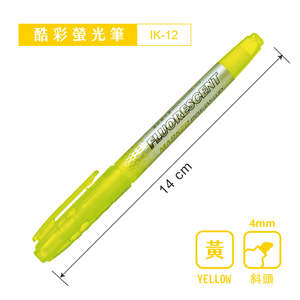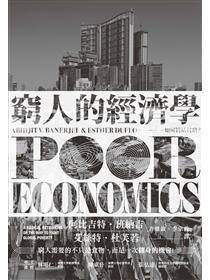 收藏
收藏

 二手徵求有驚喜
二手徵求有驚喜
定價:NT$ 2030
優惠價: 93 折, NT$ 1888
運送方式:超商取貨、宅配取貨
銷售地區:全球
訂購後,立即為您進貨




It is not often recognized that China was one of the few places in the early modern world where all merchants had equal access to the market. This study shows that private traders, regardless of the volume of their trade, were granted the same privileges in Canton as the large East India companies. All of these companies relied, to some extent, on private capital to finance their operations. Without the investments from individuals, the trade with China would have been greatly hindered. Competitors, large and small, traded alongside each other while enemies traded alongside enemies. Buddhists, Muslims, Catholics, Protestants, Parsees, Armenians, Hindus, and others lived and worked within the small area in the western suburbs of Canton designated for foreigners. Cantonese shopkeepers were not allowed to discriminate against any foreign traders. In fact, the shopkeepers were generally working in a competitive environment, providing customer-oriented service that generated goodwill, friendship, and trust. These contributed to the growth of the trade as a whole. While many private traders were involved in smuggling opium, others, such as Nathan Dunn, were much opposed to it. The case studies in this volume demonstrate that fortunes could be made in China by trading in legitimate items just as successfully as in illegitimate ones, which tellingly suggests that the rapid spread of opium smuggling in China could be a result of inadequate, rather than excessive, regulation by the Qing government.
作者簡介:
Paul A. Van Dyke is professor of history at Sun Yat-sen University in Guangzhou and author of Merchants of Canton and Macao: Success and Failure in Eighteenth-Century Chinese Trade (Hong Kong University Press, 2015). Susan E. Schopp is a historian whose research focuses on the French Canton trade and on East India ships. In 1997 she identified the wreck of the English East India Company vessel Earl Temple. She is also a crew member of Friendship of Salem, a reconstruction of an American East Indiaman.
退換貨說明:
會員均享有10天的商品猶豫期(含例假日)。若您欲辦理退換貨,請於取得該商品10日內寄回。
辦理退換貨時,請保持商品全新狀態與完整包裝(商品本身、贈品、贈票、附件、內外包裝、保證書、隨貨文件等)一併寄回。若退回商品無法回復原狀者,可能影響退換貨權利之行使或須負擔部分費用。
訂購本商品前請務必詳閱退換貨原則。作者:Paul A. Van Dyke、Susan E. Schopp
 收藏
收藏

 二手徵求有驚喜
二手徵求有驚喜
優惠價: 93 折, NT$ 1888 NT$ 2030
運送方式:超商取貨、宅配取貨
銷售地區:全球
訂購後,立即為您進貨
It is not often recognized that China was one of the few places in the early modern world where all merchants had equal access to the market. This study shows that private traders, regardless of the volume of their trade, were granted the same privileges in Canton as the large East India companies. All of these companies relied, to some extent, on private capital to finance their operations. Without the investments from individuals, the trade with China would have been greatly hindered. Competitors, large and small, traded alongside each other while enemies traded alongside enemies. Buddhists, Muslims, Catholics, Protestants, Parsees, Armenians, Hindus, and others lived and worked within the small area in the western suburbs of Canton designated for foreigners. Cantonese shopkeepers were not allowed to discriminate against any foreign traders. In fact, the shopkeepers were generally working in a competitive environment, providing customer-oriented service that generated goodwill, friendship, and trust. These contributed to the growth of the trade as a whole. While many private traders were involved in smuggling opium, others, such as Nathan Dunn, were much opposed to it. The case studies in this volume demonstrate that fortunes could be made in China by trading in legitimate items just as successfully as in illegitimate ones, which tellingly suggests that the rapid spread of opium smuggling in China could be a result of inadequate, rather than excessive, regulation by the Qing government.
作者簡介:
Paul A. Van Dyke is professor of history at Sun Yat-sen University in Guangzhou and author of Merchants of Canton and Macao: Success and Failure in Eighteenth-Century Chinese Trade (Hong Kong University Press, 2015). Susan E. Schopp is a historian whose research focuses on the French Canton trade and on East India ships. In 1997 she identified the wreck of the English East India Company vessel Earl Temple. She is also a crew member of Friendship of Salem, a reconstruction of an American East Indiaman.
退換貨說明:
會員均享有10天的商品猶豫期(含例假日)。若您欲辦理退換貨,請於取得該商品10日內寄回。
辦理退換貨時,請保持商品全新狀態與完整包裝(商品本身、贈品、贈票、附件、內外包裝、保證書、隨貨文件等)一併寄回。若退回商品無法回復原狀者,可能影響退換貨權利之行使或須負擔部分費用。
訂購本商品前請務必詳閱退換貨原則。
※ 二手徵求後,有綁定line通知的讀者,
該二手書結帳減5元。(減5元可累加)
請在手機上開啟Line應用程式,點選搜尋欄位旁的掃描圖示
即可掃描此ORcode
|
||||||||||||||||||
|
||||||||||||||||||
|
||||||||||||||||||













